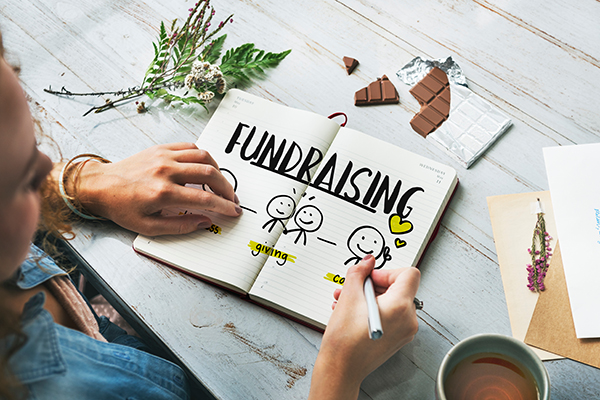Marketing a fundraising event requires a well-thought-out strategy to attract attendees, sponsors, and donors. Here’s a step-by-step guide to help you effectively market your fundraising event:
- Set Clear Goals and Target Audience: Define the goals of your fundraising event. Are you raising funds for a specific cause or project? Who is your target audience? Knowing this will guide your marketing efforts.
- Create a Compelling Event Brand: Develop a strong visual identity for your event. Design a logo, choose consistent colors, and create a unique hashtag. This branding should be used across all marketing materials.
- Build a Comprehensive Marketing Plan: Outline the marketing strategies you’ll use leading up to the event. Consider a mix of online and offline tactics, including social media, email marketing, traditional media, partnerships, and more.
- Leverage Social Media: Social media platforms are powerful tools for event promotion. Create event pages on platforms like Facebook, Instagram, Twitter, and LinkedIn. Post regularly, share engaging content, and use relevant hashtags.
- Engage Influencers and Partners: Collaborate with influencers, local celebrities, or organizations that align with your cause. Their endorsement can expand your reach and credibility.
- Design Eye-Catching Content: Create visually appealing graphics, videos, and posters that highlight the event’s purpose, date, location, and other key details. Use storytelling to emotionally connect with your audience.
- Build a Dedicated Event Website: Design a user-friendly website with all the event details, registration information, donation options, and FAQs. Include compelling visuals and compelling copy to encourage registrations and donations.
- Implement Email Marketing: Craft a series of engaging email campaigns. Send out save-the-date notifications, event invitations, reminders, and post-event follow-ups. Segment your email list to target specific groups effectively.
- Offer Early Bird and Group Discounts: Encourage early registrations by offering discounted rates for those who sign up in advance. Consider group discounts to incentivize attendees to bring friends or colleagues.
- Utilize Online Ticketing Platforms: Use platforms like Eventbrite, Ticketmaster, or others to facilitate easy ticket purchasing and registration. These platforms often have built-in promotional features.
- Tell Compelling Stories: Share stories that showcase the impact of the event’s cause. Highlight beneficiaries or individuals who have benefited from similar initiatives in the past.
- Create Engaging Video Content: Videos are highly shareable and engaging. Create teaser videos, event trailers, and behind-the-scenes glimpses to generate interest.
- Host Contests and Giveaways: Organize online contests related to your event. Offer free tickets or event-related merchandise as prizes to create buzz and encourage participation.
- Utilize Public Relations: Reach out to local newspapers, magazines, radio stations, and blogs for coverage. Send out press releases highlighting the event’s purpose and impact.
- Engage Attendees with Social Proof: Share testimonials from previous attendees or donors who have benefited from similar events. Positive feedback can increase trust and credibility.
- Provide Regular Updates: Keep your audience informed about event preparations, guest speakers, entertainment, and any changes. Regular updates maintain excitement.
- Run Targeted Ads: Use paid social media advertising to reach specific demographics that align with your target audience. Platforms like Facebook and Instagram allow for detailed targeting.
- Create a Countdown Campaign: As the event date approaches, create a countdown campaign to build anticipation and remind people to register or donate.
- Encourage Word of Mouth: Empower attendees and supporters to share the event with their networks. Word of mouth can be a powerful tool for expanding your reach.
- Post-Event Content: After the event, share photos, videos, and stories that showcase its success and the impact it had. This content can serve as a reminder for attendees and donors about the value of their contribution.
Remember that consistency and creativity are key in your marketing efforts. Tailor your strategies to suit your target audience and the nature of your fundraising event. Monitor your progress and adjust your tactics based on what’s working best. Schedule a coaching session with us for ideas on how to market or promote your next event.

